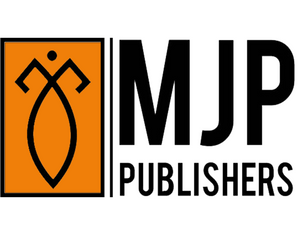Your cart is currently empty.

Solid Waste Management is a worldwide phenomenon. Improper management of solid waste causes hazards to inhabitants and residents and affects the wealth and health of “Mother Earth”. Global evidences show that, the death rate from improper management of solid waste results in 9 per 1000 of population. Financial constraints prevent the local governments, starting from metro-cities to village panchayat, from creating a proper waste collection and disposal mechanism. Therefore, waste generated by the local governments is inadequately and poorly managed in many countries of the world. Most cities, towns, small towns and villages, do not collect the totality of waste generated and of the waste collected, only a fraction receives proper disposal. Thus, waste management is becoming a major health and environmental concern in urban, semi-urban and even rural areas of many developing countries. Waste management is given very low priorities in the developing countries whose budgetary provision is too small to manage the solid waste. Changing life styles and moving towards cosumeristic society pose waste management challenges, as waste management systems in developing countries are incapable of frequent adjustment to match these life style changes. Waste (solid/liquid/gaseous) is a direct consequence of all human activities. Management of solid waste is a discipline associated with the principles of public health, economics, engineering, and conservation. Scientific management of waste involves seven important steps viz., segregation and storage of waste at source, primary collection, street sweeping, secondary storage, transportation, treatment and recycling and finally disposal of waste in a saleable manner. Rapid urbanization coupled with modernization has led to several fold increases in the generation of wastes, like household waste, commercial waste, industrial waste, construction waste, agriculture waste, sewage waste, wastes from mining and quarrying, bio-medical waste, radioactive waste and e-waste. Since, solid waste is a global phenomenon, the economies of the globe, particularly developing economies, are expressing anxiety on the adverse effects of increasing quantum of solid waste and taking initiatives to adopt Integrated Solid Waste Management System with a view to reducing the harmful characteristics of solid waste produced by different economic sectors. Generation of household waste is an unavoidable result of many activities of modern civilization. With these backgrounds, an attempt has been made by the author to study the solid waste management by the residents of Chinnalapatti Town Panchayat in Dindigul District, Tamil Nadu with the following objectives such as: to study the socio-economic conditions of the residents of Chinnalapatti Town Panchayat; to identify the factors that determine the generation of wastes by the residents of Chinnalapatti Town Panchayat; to estimate the quantity and types of wastes generated by the residents of Chinnalapatti Town Panchayat; and to suggest sustainable strategies and policies for effective management of wastes in Chinnalapatti Town Panchayat. The proposed study is basically empirical in nature and based on primary data, collected through household’s survey, interview and discussion with the residents in the study area. According to 2011 Census, Chinnalapatti Town Panchayat has 8024 residents who are living in 18 wards with four zones viz., East, West, South and North. Further, author has applied proportionate random sampling technique and finally chosen 501 samples of residents for the purpose of present research investigation.
Contents:
Chapter I - Introduction,
Chapter II - Solid Waste Management: An Overview,
Chapter III - Conceptual and Theoretical Frameworks,
Chapter IV - Environmental Analysis With Special Reference to Waste Management,
Chapter V - Residential Waste Management in Town Panchayat: Micro Level Analysis,
Chapter VI - Findings, Suggestions and Conclusion.
